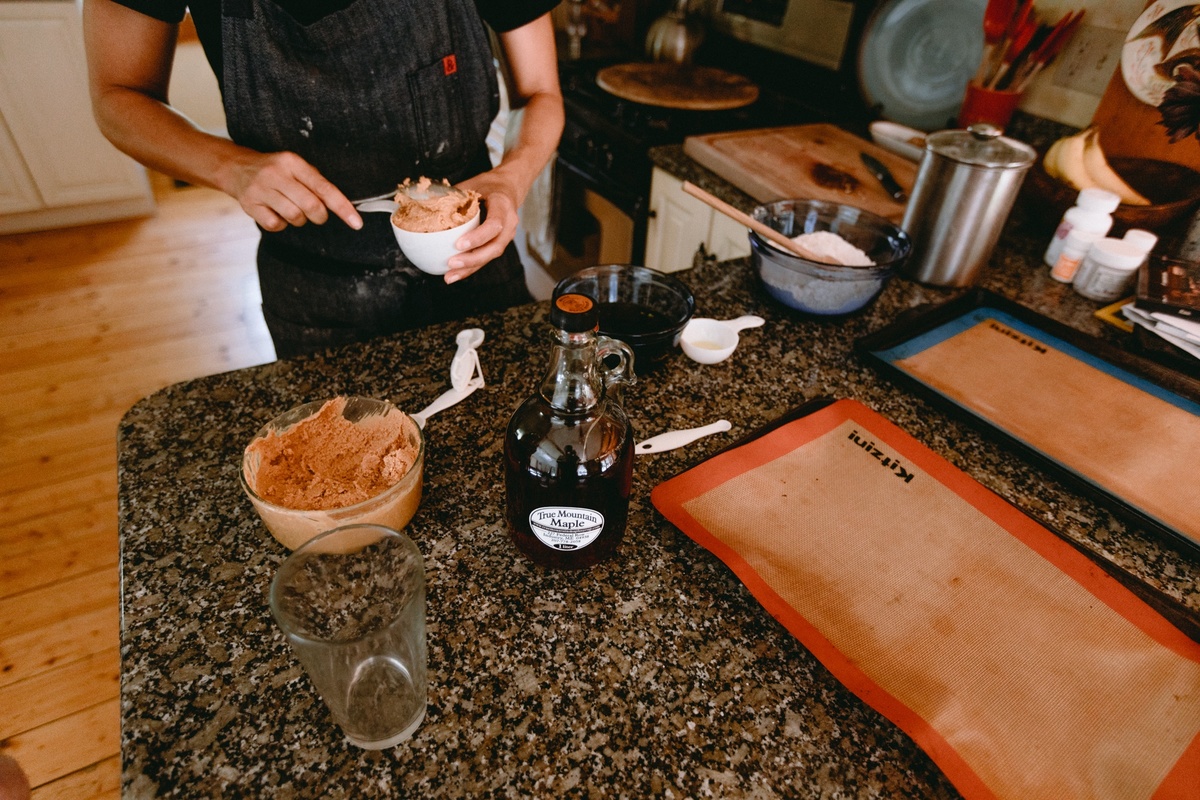You’ve trained hard for your race, putting in the workweek in and week out so you’re in top form. Now comes the big day. Don’t let all of that hard work and preparation go to waste by getting your race day nutrition wrong. Just like you can’t put sawdust in the tank of an F1 car and expect it to win a Grand Prix, you can’t cram whatever you want into your body on race day and expect to deliver a winning performance.
We spoke with Coach Mac Cassin, Chief Cycling Physiologist at Wahoo Sports Science, to get some tips on winning race day fueling strategies. Follow these simple, effective techniques to make sure your engine has what it needs to take you across the line.
General Fueling Guidelines
- Focus on carbohydrates and lean protein. Aim to eat a substantial meal of carbs and lean protein at least two hours before your event.
- It’s better to over fuel than under fuel, especially for longer endurance events.
- Avoid eating at least 60 minutes before your event.
- Avoid dairy.
- Avoid fats and fiber, both of which take time to be converted into usable fuel.
- Avoid salty, fried foods. They can slow down your body’s ability to take in carbs.
- The maximum amount of carbohydrates your body can absorb is 90g per hour. 60g should be in the form of glucose, while 30g should be fructose. Look for “maltodextrin” in the ingredients list.
- The average 75kg / 165lb male has about 500g of carbohydrates stored and available as fuel. Producing 100w of power for an hour will burn through 360 calories (similarly, producing 200w of power for an hour will burn 720 calories). If you have a power meter, keep an eye on your output, and replace carbs accordingly.
- It takes around 90 minutes after you eat for the carbs to be available for your muscles to use. Remember the old adage, if you wait until you’re hungry to eat, it’s too late.
Go With What You Know
The day of a race or big event isn’t the time to channel your inner culinary adventurer. You’ll most likely have some race day jitters that can make things a little gurgly down there and you don’t want to make things worse by introducing new or unfamiliar foods. If oatmeal with peanut butter and raisins is your go-to pre-ride meal, don’t experiment with Thai fried rice and a T-bone on the day of your race. Familiar, predictable, and easy-to-digest are the name of the game.
Eat For The Event
The duration and specific demands of your event will play a big part in determining your fueling strategy. A 45-minute cyclocross race or a crit will require a different strategy than a 12-hour, 200-mile gravel race. Regardless of the event, you want to avoid eating too close to the start to prevent any big fluctuations in blood sugar that might cause you to bonk. The ideal window is two hours before the start, and you should avoid eating at least an hour before the flag drops.
For Crits and Shorter Events:
- A substantial meal of rice and eggs or egg whites two hours before, followed by a gel 10 minutes prior to the gun.
- For events under 90-minutes, avoid taking in carbs around 60 minutes before the start. Carbs will take around an hour and a half to hit your system and eating too close to the start will cause a blood sugar spike and crash right when you need the energy the most.
- Shorter events typically won’t require you to take on any additional fuel during the event since it won’t be available to your muscles until you’ve already passed the finish line. Sipping on a sports drink or electrolyte fluid should be sufficient.
For Longer Endurance Events:
- A big bowl of oatmeal with nuts or nut butter and raisins two hours before would be ideal (assuming you’ve experimented with it in training and aren’t trying it for the first time on race day).
- Eat small amounts of mostly carbs frequently during your race or event, ideally every 15 minutes. Using a gel flask can help make taking on fuel easier as well as prevent you from having to lug around a bunch of empty gel packets in your jersey pockets.
- Drink your carbs. High-carb sports drinks make it easy and convenient to take in what you need. Frequent small sips are better than chugging a full bottle.
- Pay close attention to hydration. Getting plenty of fluids and replacing electrolytes is as important as fueling.




